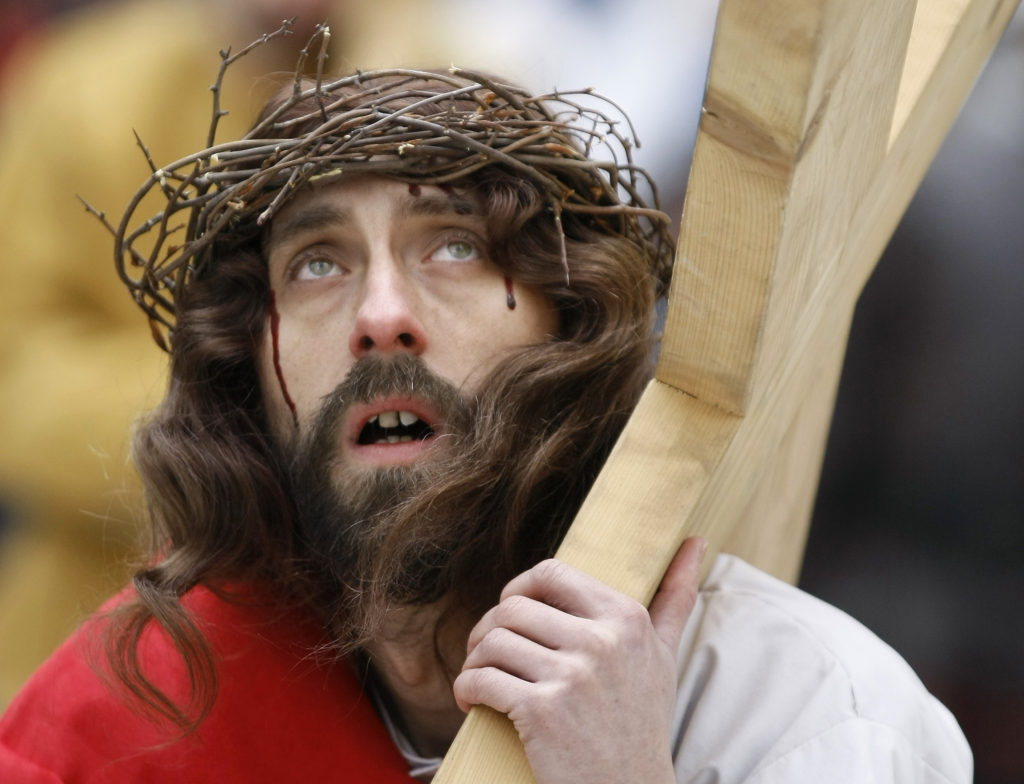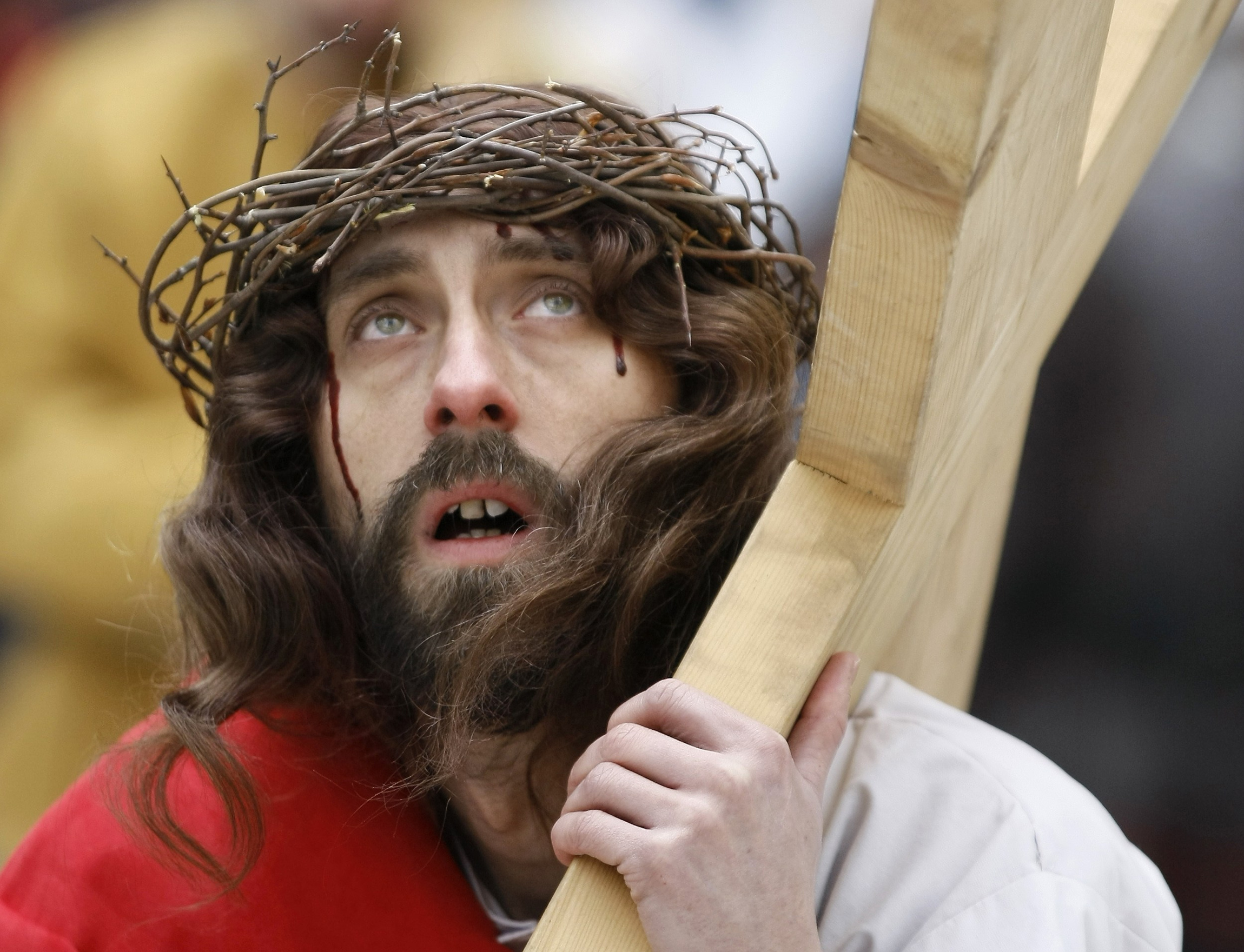
Holy Week is a practice of prayer, meditation, fasting and penance in preparation for the holiest day of the year — Easter.
At least it should be.
“People still have to go to work, but they can cut back on entertainment and eat simply,” said Fr. Vincent J. Mesi, OFM, rector of St. Mary’s Basilica. “It’s important to simplify and spend time in prayer and final preparation for Easter.”
The Hebrew word for Passover is pesach, which is where the words pascha and paschal come from. Pascha and paschal are words for Easter.
The Paschal Mystery — the passion, death, resurrection and ascension of Jesus — is the center of our Christian faith.
Palm Sunday marks the beginning of Holy Week.
“Holy Week is totally different from anything else,” said Mike Rose, a parishioner at
St. Bernadette in Scottsdale. “Unlike Christmas with its feasts and parties there is only one focus for Holy Week: death and resurrection. I can’t say that I like it, but there’s a happy ending.”
Lent actually ends at sundown on Holy Thursday when we celebrate the evening Mass of the Lord’s Last Supper. This is the first day of the Paschal Triduum.
The Latin word, Triduum, means “three days.” It refers to the three days preceding Easter, which consists of Holy Thursday, Good Friday and Holy Saturday.
“During the sacred three days, it is one celebration, one continual Mass in celebration of one mystery,” Fr. Mesi said.
Beginning Holy Thursday, he said the faithful come together and “go with Jesus in the sacrament to keep vigil and pray.”
A vigil is kept with the Blessed Sacrament in an altar of repose until midnight; it is a reminder of waiting in the Garden of Gethsemane to pray with Jesus.
The Mass of the Lord’s Supper includes the washing of the feet ceremony that brings to life the humility first exemplified by Jesus. The faithful are reminded of the institution of both the Eucharist and the call to priesthood.
The second day of the Triduum is Good Friday, the day of the Lord’s Passion. There is no opening or closing because it is a continuation of Holy Thursday, and there is no Mass anywhere in the world on Good Friday.
The tabernacle is empty to commemorate Jesus’ dying on the cross.
“It was a good day for humanity because Jesus suffered for us,” Fr. Mesi said. “We gather prayerfully to venerate the cross and receive Holy Communion consecrated the night before.”
And finally, there’s what St. Augustine described as “the mother of all vigils,” Holy Saturday.
Those joining the Catholic Church are initiated this night, through words, symbols and rituals, in celebration that Jesus conquered both sin and death.
This is the first Mass of Easter.
It is the greatest feast of the liturgical year because by rising from the dead, Jesus fulfilled the work for which He had come and opened the gates of heaven to all mankind.
Franciscan Brother Tito Garcia, originally from San Juan de Los Lagos Jalisco, Mexico, said Holy Week is family time spent in prayer.
“It can be easy to get discouraged because of the demands of the world, so you have to really set aside time for contemplation and reading of Scripture,” he said. “Try to give Him a minute to prepare for the whole beauty of the resurrection and what it means for us.” Brett Copeland, 22, is a convert who takes a meditative approach to Holy Week.
“I reflect on the whole purpose and meaning of being a Christian; Jesus died for our sins and He loves us.”
The three days of the Paschal Triduum then lead to the beginning of 50 days of Easter rejoicing.
“Holy Week is a time to take stock. Just because you did nothing during Lent, you didn’t miss out,” Rose said. “There’s the resurrection; it’s real.”






